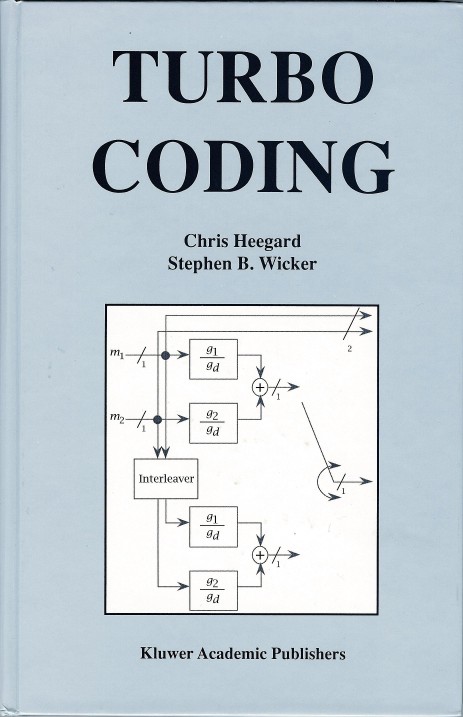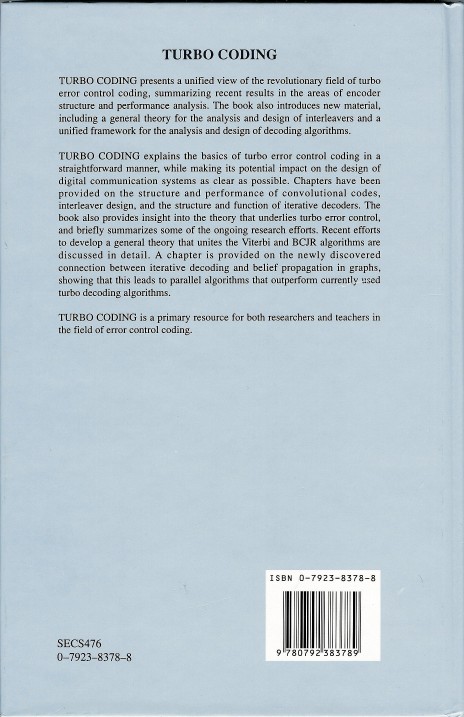Turbo Coding
by
Chris Heegard
Alantro Communications, Inc., CA, and Cornell University, NY, USA
Stephen B. Wicker
Cornell University, Ithaca, NY, USA
THE KLUWER INTERNATIONAL SERIES IN ENGINEERING AND
COMPUTER SCIENCE
Volume 476
Turbo Coding presents a unified view of the revolutionary
field of turbo error control coding, summarizing recent results in the
areas of encoder structure and performance analysis. The book also
introduces new material, including a general theory for the analysis
and design of interleavers, and a unified framework for the analysis
and design of decoding algorithms.
Turbo Coding explains the basics of turbo error control coding
in a straightforward manner, while making its potential impact on the
design of digital communication systems as clear as possible. Chapters
have been provided on the structure and performance of convolutional
codes, interleaver design, and the structure and function of iterative
decoders. The book also provides insight into the theory that
underlies turbo error control, and briefly summarizes some of the
ongoing research efforts. Recent efforts to develop a general theory
that unites the Viterbi and BCJR algorithms are discussed in detail. A
chapter is provided on the newly discovered connection between
iterative decoding and belief propagation in graphs, showing that this
leads to parallel algorithms that outperform currently used turbo
decoding algorithms.
Turbo Coding is a primary resource for both researchers and
teachers in the field of error control coding.
| Contents |
|---|
| | Preface |
| 1. | Introduction |
| 2. | Binary Codes, Graphs, and Trellises |
| 3. | Interleaving |
| 4. | Concatenated Codes |
| 5. | BCE and PCE Performance |
| 6. | Turbo Decoding |
| 7. | Belief Propagation and Parallel Decoding |
| | Index |
|

|

|
Kluwer Academic Publishers, Boston
- Hardbound, ISBN 0-7923-8378-8
November 1998, 232 pp.
EUR 102.00 / USD 108.00 / GBP 77.75



